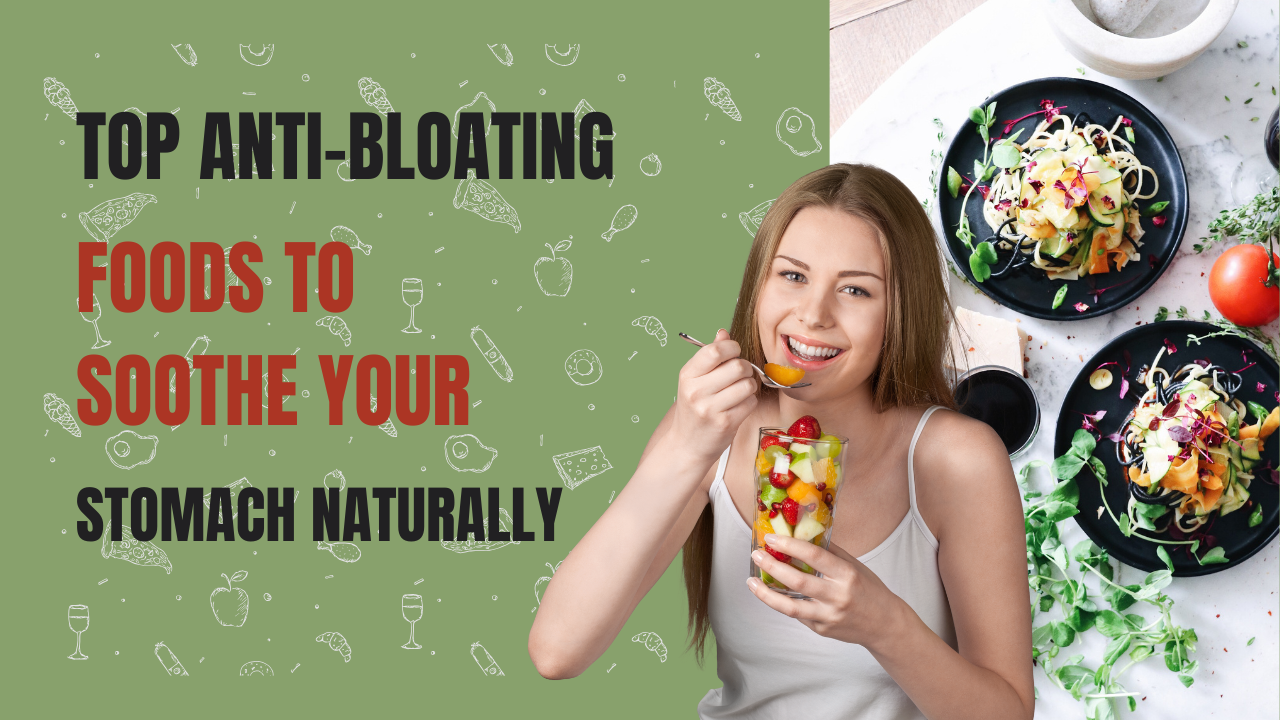Bloating is a common digestive complaint marked by an uncomfortable sensation of fullness, tightness, or distention in the abdomen. It can occur with or without visible swelling and is often accompanied by burping, flatulence, or abdominal rumbling. While occasional bloating is normal, persistent symptoms may point to underlying digestive issues.
One frequent cause of bloating is slowed digestion, especially after consuming fatty, greasy, or heavy meals that take longer to break down. This delay can lead to the buildup of gas and pressure in the digestive tract. Additionally, certain carbohydrates—like those found in beans, lentils, and some fruits—ferment in the gut and produce gas, leading to that bloated feeling.
Other contributing factors include fluid retention from high sodium intake and imbalances in the gut microbiome, also known as dysbiosis. When the balance of good and bad bacteria is disrupted, digestion suffers, often triggering bloating, discomfort, and irregular bowel habits.
Functional digestive disorders like IBS often exacerbate bloating. Thankfully, simple dietary strategies—especially incorporating certain anti‑bloating foods—can bring noticeable relief. This guide reveals not just what to eat, but how and why it works.
Top Tips for Minimizing Bloating
Hydrate with water‑rich foods and teas
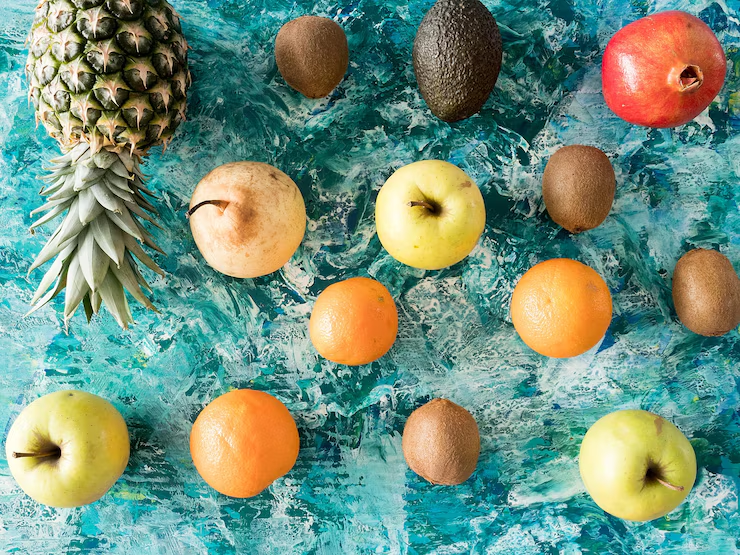
Staying well-hydrated is essential for smooth digestion and can significantly reduce bloating. Drinking enough water helps keep stool soft, making bowel movements more regular and preventing constipation—a major cause of bloating and discomfort. Water also aids in breaking down food more efficiently in the stomach and intestines.
Including Anti-Bloating Foods that are high in water content, such as cucumbers, watermelon, and celery, supports hydration and promotes gentle flushing of excess fluids. These foods act as natural diuretics, helping reduce water retention and abdominal puffiness. Their light, easily digestible nature makes them ideal for soothing the digestive system.
Herbal teas like peppermint and chamomile further enhance digestion by relaxing the intestinal muscles and reducing gas buildup. These teas not only ease discomfort but also support the body’s natural ability to eliminate waste and toxins, making them a soothing and effective addition to any anti-bloating routine.
Include natural anti‑spasmodic herbs
Certain herbs are powerful Anti-Bloating Foods that naturally support digestive health. Ginger, fennel, and peppermint have long been used to ease bloating and discomfort due to their soothing properties. These herbs help relax the muscles in the digestive tract, promoting smoother movement of gas and food.
Ginger contains gingerols—active compounds known for their anti-inflammatory and carminative effects. These help reduce intestinal irritation and cramping while stimulating digestion. Fennel seeds are rich in anethole, which helps prevent gas formation and encourages the expulsion of trapped air, easing pressure and bloating.
Peppermint is another standout among Anti-Bloating Foods, thanks to its menthol content. Menthol has a calming effect on the gut lining, which can relieve spasms and allow gas to pass more easily. Drinking herbal teas or incorporating these herbs into meals can provide natural, gentle relief from bloating and support overall digestive comfort.
Balance electrolytes with potassium‑rich foods
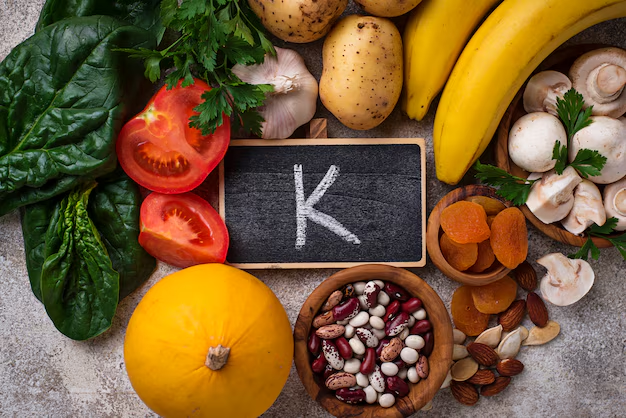
Potassium is a key mineral that helps balance fluids in the body, making it essential for managing bloating. It works by countering the water-retaining effects of sodium, which is often responsible for puffiness and abdominal swelling. Including potassium-rich Anti-Bloating Foods in your diet can support a flatter, more comfortable belly.
Foods such as bananas, avocados, sweet potatoes, cucumbers, and spinach are excellent sources of potassium. These nutrient-dense options not only provide essential electrolytes but also promote gentle diuretic effects, helping the body flush out excess fluids and reduce bloating naturally. Their high fiber content also supports smoother digestion.
Cucumbers and spinach, in particular, are rich in both water and potassium, offering a double benefit for bloating relief. Adding these Anti-Bloating Foods to meals and snacks can help maintain fluid balance, prevent retention, and promote a healthier, more efficient digestive system.
Support gut flora with probiotics & prebiotics
A healthy gut microbiome plays a crucial role in digestion and bloating prevention. When the balance of good bacteria is maintained, digestion becomes more efficient, and the risk of gas buildup is reduced. Supporting gut health with the right Anti-Bloating Foods can significantly ease bloating and abdominal discomfort.
Probiotic-rich foods like yogurt, kefir, sauerkraut, kimchi, and kombucha introduce beneficial bacteria into the gut. These live cultures help rebalance the intestinal flora, enhancing digestion and reducing fermentation that often leads to bloating. Regularly consuming these Anti-Bloating Foods supports a more stable digestive environment.
Equally important are prebiotic fibers that feed the good bacteria already present. Foods like asparagus, bananas, oats, garlic, onions, and Jerusalem artichokes nourish gut microbes, helping them thrive. Combining probiotics and prebiotics through Anti-Bloating Foods creates a healthy gut ecosystem, which naturally reduces bloating and promotes overall digestive health.
Choose low‑FODMAP Foods If You’re Sensitive
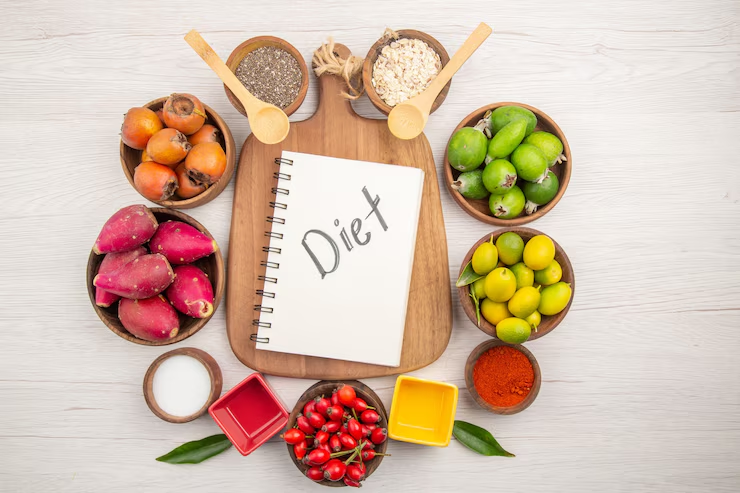
FODMAPs are short-chain carbohydrates that are poorly absorbed in the gut and easily fermented by bacteria, producing gas. For individuals with sensitive digestive systems or conditions like IBS, FODMAPs can be a major trigger for bloating, discomfort, and cramping. Choosing the right Anti-Bloating Foods can make a big difference.
Low-FODMAP whole foods such as carrots, zucchini, grapes, spinach, and strawberries are easier on the digestive system and less likely to cause gas buildup. These Anti-Bloating Foods help reduce bloating without sacrificing essential nutrients, making them ideal for those managing food sensitivities.
Incorporating low-FODMAP options into daily meals can calm the gut and improve digestion. While not everyone needs to avoid FODMAPs entirely, identifying personal triggers and focusing on gentle Anti-Bloating Foods supports a more comfortable and balanced digestive experience over time.
Opt for easy‑digesting whole grains
Whole grains can be a great source of fiber, but some—like wheat, barley, and rye—contain fermentable carbs that may trigger bloating in sensitive individuals. For a gentler option, choosing Anti-Bloating Foods such as oatmeal, quinoa, and rice can offer digestive support without excessive gas.
These grains are naturally low in FODMAPs and easier to digest, especially for those with gluten sensitivities or irritable bowel syndrome (IBS). Their soluble fiber content helps soften stool and promote regular bowel movements, which is essential for preventing bloating and constipation.
Oatmeal, quinoa, and rice also provide lasting energy and nutrients while being kind to the gut. Including these Anti-Bloating Foods in your daily meals supports smoother digestion and reduces the likelihood of bloating, making them a smart staple for a balanced, bloat-free diet.
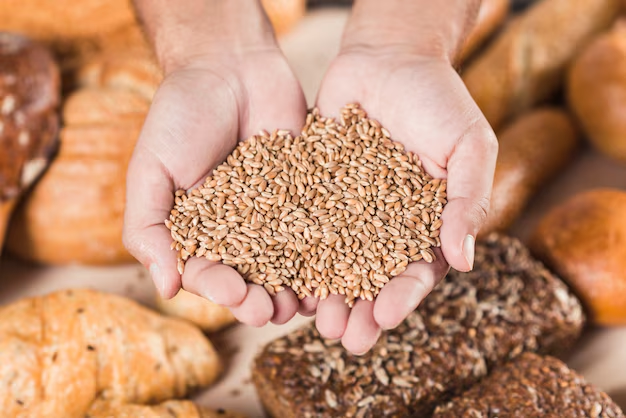
Avoid or limit bloating culprits
While many foods are nutritious, some are common triggers for bloating due to their impact on digestion. Beans, lentils, and cruciferous vegetables like broccoli and cauliflower can produce excess gas during fermentation in the gut. For those prone to bloating, it’s important to identify and limit these foods when necessary.
Other culprits include garlic, onions, carbonated beverages, and artificial sweeteners, which can irritate the digestive tract or lead to gas buildup. High-fat fried foods and dairy products, especially in lactose-intolerant individuals, also slow digestion and contribute to bloating. Avoiding these triggers can help ease discomfort and support gut health.
To counter these effects, focus on Anti-Bloating Foods such as cucumbers, bananas, spinach, and rice. These gentle, nourishing choices support healthy digestion, reduce gas, and help maintain a more balanced digestive system—essential for long-term relief from bloating.
Anti-Bloating Food Categories & Their Benefits
Ginger
Mechanism: Rich in gingerols and shogaols, ginger offers anti-inflammatory and anti-spasmodic effects. It calms the gut, speeds up digestion, and reduces gas—making it a powerful Anti-Bloating Food.
Tips: Sip ginger tea, grate into meals, or take as a supplement.
Daily Idea: Start your morning with warm water, lemon, and fresh ginger.
Peppermint
Mechanism: Contains menthol, which relaxes digestive muscles, enhances bile flow, and eases gas and bloating.
Tips: Try peppermint tea after meals. Avoid if prone to acid reflux.
Fennel / Fennel Seeds
Mechanism: Anethole in fennel relaxes the GI tract, helps release trapped gas, and acts as a gentle diuretic.
Tips: Chew fennel seeds post-meal or brew into tea.
Daily Idea: Add cumin-fennel mix to roasted veggies—delicious and effective.
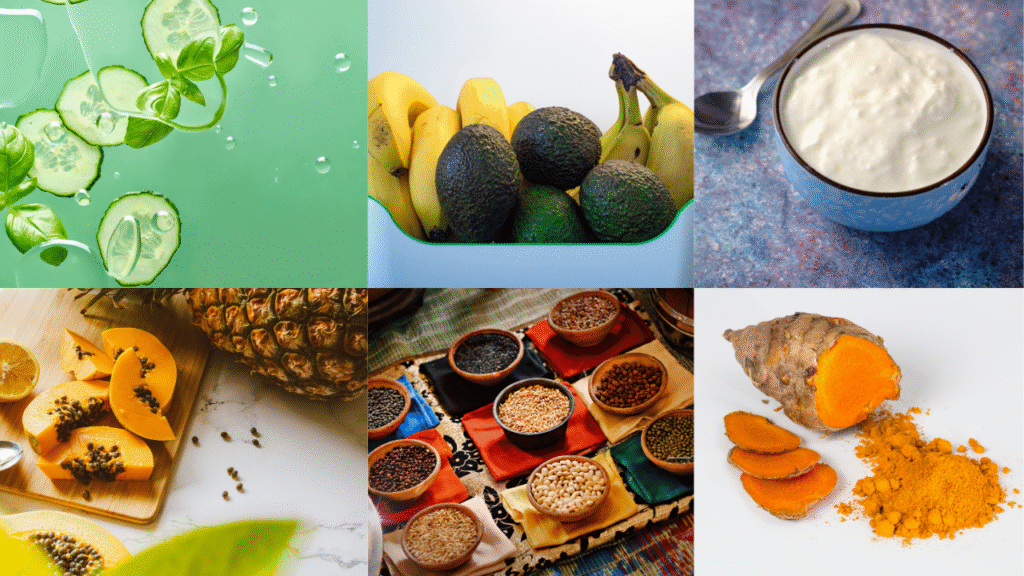
Cucumber & Water-Rich Produce
Mechanism: These hydrating Anti-Bloating Foods flush out sodium and excess fluids while reducing gut inflammation.
Tips: Add sliced cucumber to salads or water; enjoy watermelon and celery regularly.
Banana, Avocado & Other Potassium-Rich Foods
Mechanism: Potassium helps balance sodium, minimizing water retention. These Anti-Bloating Foods also offer fiber for smoother digestion.
Tips: Enjoy avocado toast, smoothies with banana, or bake sweet potatoes.
Daily Idea: Try a banana-avocado-spinach smoothie.
Yogurt, Kefir & Fermented Foods
Mechanism: Probiotics in these foods help restore gut flora, easing gas and improving nutrient absorption.
Tips: Choose unsweetened Greek yogurt or kefir; add sauerkraut for variety.
Papaya & Pineapple
Mechanism: These fruits contain enzymes (papain and bromelain) that break down proteins, reduce inflammation, and ease bloating.
Tips: Mix fresh papaya or pineapple into yogurt or salads.
Whole Grains & Quinoa
Mechanism: Oats, quinoa, and brown rice provide soluble fiber, support regularity, and are low-FODMAP—ideal Anti-Bloating Foods.
Tips: Start your day with oatmeal; swap rice for quinoa in meals.
Turmeric
Mechanism: Curcumin, the active compound in turmeric, has anti-inflammatory benefits and may relieve IBS-related bloating.
Tips: Add turmeric to curries, golden milk, or smoothies.
Other Supportive Anti-Bloating Foods
Celery & Beets: Diuretic, hydrating, and rich in fiber.
Kiwi & Berries: High in fiber and enzymes like actinidin that aid digestion.
Chamomile Tea: Calms the gut and relieves bloating.
Cumin & Spices (cloves, cinnamon, turmeric): Help reduce gas and support digestion naturally.
Sample Daily Anti‑Bloat Meal Plan
| Meal | Menu | Key Benefits |
|---|---|---|
| Breakfast | Oatmeal with banana slices, berries, and flax Ginger-turmeric tea | Fiber, hydration, anti-inflammatory |
| Mid-Morning Snack | Greek yogurt with diced papaya and cinnamon | Probiotics, digestive enzymes (papain) |
| Lunch | Quinoa salad with cucumber, avocado, spinach, orange segments Olive oil & lemon dressing | Potassium, fiber, antioxidants |
| Fennel seed water | Relaxes digestion, reduces gas | |
| Afternoon Snack | Peppermint tea Whole-grain crackers Fresh pineapple cubes | Anti-spasmodic, fiber, enzymes (bromelain) |
| Dinner | Grilled fish or chicken Steamed asparagus and sweet potato Fermented sauerkraut/kimchi | Lean protein, potassium, probiotics |
| Evening Relaxer | Chamomile tea or warm water with lemon | Calms the gut, aids digestion |
Lifestyle Enhancers (Beyond Food)
Chewing food thoroughly supports better enzyme activity and helps kick-start digestion, reducing the chances of bloating. Pairing this habit with Anti-Bloating Foods like ginger or yogurt can enhance these effects even more.
Eating slowly is equally important, as it minimizes the amount of air swallowed during meals—a common cause of bloating. Combine slow, mindful eating with light, easy-to-digest Anti-Bloating Foods such as cucumbers or bananas for optimal results.
Staying active after meals, especially with light walking, helps move trapped gas through the digestive tract. Keeping a food journal can also help you pinpoint which foods cause discomfort and which Anti-Bloating Foods work best for your body. If bloating still strikes, applying a warm heat pad to your abdomen can relax intestinal muscles and provide soothing relief.
7‑Day Anti‑Bloat Action Plan
| Day | Focus | Details |
|---|---|---|
| Days 1–2 | Eliminate Common Bloat Triggers | Avoid carbonated drinks, artificial sweeteners, heavy dairy, and fried foods. |
| Days 3–4 | Introduce Anti-Bloating Superfoods | Add ginger, peppermint tea, fennel seeds, yogurt, cucumber, banana, papaya. |
| Days 5–6 | Shift to Low-FODMAP Meals | Try meals like rice + zucchini + lean chicken + kiwi + chamomile tea. |
| Day 7 | Evaluate and Personalize | Assess how you feel. Reintroduce mild offenders slowly while tracking symptoms. |
Conclusion

To effectively reduce bloating, start by cutting out common culprits such as carbonated drinks, high-sodium foods, artificial sweeteners, and FODMAP-rich ingredients like onions, garlic, and certain legumes. These often lead to gas buildup, water retention, and digestive discomfort. Replacing them with gentle, gut-friendly Anti-Bloating Foods supports smoother digestion and comfort.
Support your digestive system with natural aids like ginger, fennel, peppermint, and turmeric. These powerful herbs and spices have anti-spasmodic and anti-inflammatory properties that relax intestinal muscles, ease cramping, and help gas move through the system. Hydration is also key—incorporate water-rich, potassium-loaded Anti-Bloating Foods such as cucumbers, celery, bananas, and avocados to help flush out excess sodium and balance fluids.
Additionally, nourish your gut with probiotics from yogurt, kefir, and fermented vegetables, and feed those good bacteria with prebiotic fibers found in oats, garlic, and bananas. Pair these Anti-Bloating Foods with mindful habits like chewing thoroughly, eating slowly, and staying active.
FAQs
Q,1 What are the best Anti-Bloating Foods to eat daily ?
Foods like cucumbers, bananas, ginger, yogurt, and peppermint tea are great daily choices. They help reduce gas, support digestion, and balance fluids.
Q.2 Can bloating be a sign of a serious health issue ?
Occasional bloating is normal, but frequent or painful bloating may indicate conditions like IBS, food intolerances, or gut imbalances. It’s best to consult a healthcare provider if symptoms persist.
Q.3 How quickly do Anti-Bloating Foods work ?
Some foods, like peppermint tea or ginger, can provide relief within a few hours. Others, like probiotics and high-fiber foods, may take a few days to show effects.
Q.4 Are there any foods I should avoid to prevent bloating ?
Yes, avoid or limit foods like beans, onions, carbonated drinks, fried foods, and artificial sweeteners. These often lead to gas buildup and water retention.
Q.5 Can lifestyle habits improve bloating along with diet ?
Absolutely. Chewing food slowly, eating smaller meals, staying active, and staying hydrated can all enhance digestion and reduce bloating.

